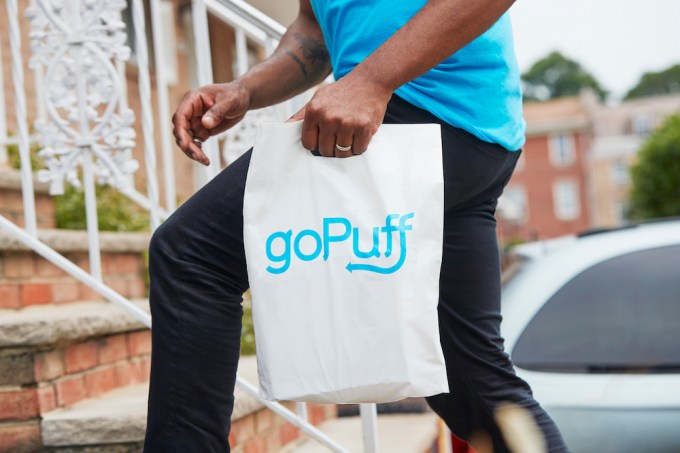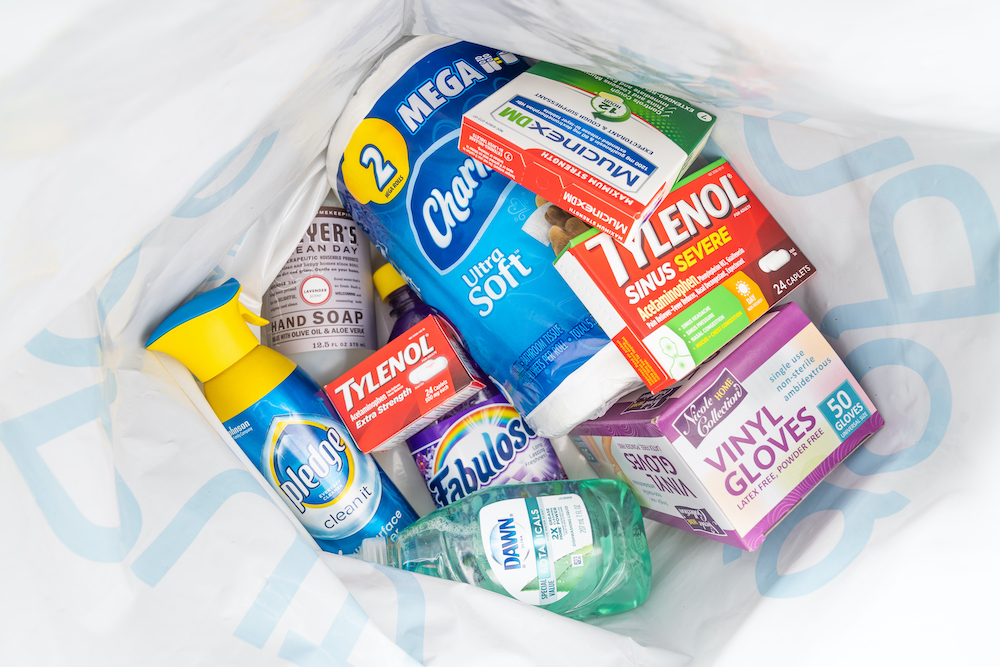GoPuff is a Philadelphia-headquartered startup that delivers products like over-the-counter medicine, baby food and alcohol (basically, the stuff you’d buy at a convenience store) in 30 minutes or less.
Yakir Gola, who serves as co-CEO with his co-founder Rafael Ilishayev, told me their goal is to create “the go-to platform for over-the-counter medicine or household products or baby food or ice cream or even alcohol — goPuff will deliver all these products in under 30 minutes, 24/7.”
While the startup has kept a relatively low profile in the media, it’s already available in more than 500 U.S. cities (recent launches include Dallas, Miami, Detroit, Minneapolis and Houston). And it has raised $1.35 billion in total funding, including a just-announced $380 million round that values the company at $3.9 billion.
The new round was led by Accel and D1 Capital Partners, with participation from Luxor Capital and SoftBank Vision Fund. (Accel and SoftBank both invested previously, as well.)
“Accel first invested in goPuff in 2018 because of the team’s visionary approach to on-demand delivery and its commitment to building the infrastructure needed to create its unique, vertically integrated model,” said Accel partner Ryan Sweeney in a statement. “Because of goPuff’s focused approach, they have consistently delivered some of the best unit economics we’ve seen, while growing nationwide. We’re thrilled to remain a committed partner to Yakir, Rafael and the rest of the goPuff team on their journey.

Gola said that he and Ilishayev created the company in 2013 when they were attending Drexel University together and thought, “There has to be a better way to get convenience products delivered.”
Despite the company’s impressive war chest, Gola said goPuff has had “a huge focus on fiscal responsibility” from the start. At first, the founders were the ones making the deliveries, and they funded their initial expansion with cashflow and profits.
“What was important for us from day one was to start a business that makes money, that has real margins,” he said.
To achieve that, Gola touted the startup’s “vertically integrated model,” where it buys products directly from manufacturers, then gets those products to consumers through a network of 200 “micro-fulfillment” centers (staffed with goPuff employees) and a network of independent drivers.
Besides meaning that goPuff “makes money off the products we sell” (rather than simply charging a fee on deliveries), Gola said this model allows the company to mix products from national and local brands, and it’s “constantly introducing new products and discontinuing things that don’t sell.”
Quarantine drives interest in autonomous delivery, but it’s still miles from mainstream
As you’d expect, demand increased significantly during the pandemic, but Gola said the company also made sure to provide protective equipment to all its employees and drivers, and it created an emergency fund to provide financial assistance for any of them who got sick.
In addition to the funding, goPuff is announcing that it has hired former Lowe’s CMO Jocelyn Wong as its first chief customer officer, former Uber global head of fintech and U.S. business development Jonathan DiOrio as its first chief business officer and former TripAdvisor engineering executive Rekha Singh as vice president of engineering.
Looking ahead, as companies like Amazon and Uber are also looking to deliver more and more products in less and less time, Gola said goPuff will continue to differentiate itself in a few key ways.
“There’s nothing like goPuff, so we had to build everything from scratch,” he said. “Whether it’s our location-based inventory system or many things related to our technology, that’s all ours. And then when you talk about differentiation from the customer side, we control the inventory and can make sure that the customers get exactly what they ordered. That focus on our customer is how we’re going to win long-term, and it’s how we got to the point of where we are today.”































Comment